Description
ABSTRACT
An Examination of the Right of Hot Pursuit and the Nigerian Maritime Zones
Chibueze Muobuikwu*
A general rule of the law of the sea is that all vessels have the right to navigate freely on the high seas. However, customary international law recognises the doctrine of hot pursuit as an exception to the principles of freedom on the high seas. The right of hot pursuit allows a coastal state to pursue, up to the high seas, arrest and/ or escort a foreign vessel that violates its laws and regulations while in its coastal zones, though such pursuit must be immediate and continuous. The right of hot pursuit has been codified in Article 23 of the 1958 Geneva Convention on the High Seas (High Seas Convention) and was also adopted in Article 111 of the United Nations Law of the Sea Convention (UNCLOS), 1982. The paper examines the right of hot pursuit, the rationale, the conditions for its exercise, the drawbacks, and the extent of its application in the protection of Nigerian maritime zones, as well as recommendations for reform.
Keywords: Hot Pursuit, Customary International Law, UNCLOS, Nigerian Maritime Zones.
INTRODUCTION
Poulantzas, defines the right of hot pursuit as the right of a coastal state to continue outside the territorial sea, the contiguous zone, or certain adjacent areas, the pursuit of a foreign vessel which while within the internal waters or the territorial sea, the contiguous zone, or certain adjacent areas of the pursuing State- has violated the laws and regulations of this state, provided, however, that the
pursuit has commenced immediately after the offence and has not been interrupted.1
The essence of the right of hot pursuit is to ensure that vessels which have violated the rules of a coastal state do not escape to the high seas. In effect, by virtue of the doctrine, a coastal state may pursue and capture the offending ship on the high seas and escort it back to its port.2 The doctrine strikes a balance between the principles of free navigation on the high seas, and the interest of the coastal states in the efficient governance and protection of their maritime zones. A foreign vessel cannot hide behind the cloak of the right of free navigation, designed to protect innocent vessels, to perpetrate mischievous ends.3 The doctrine is therefore, designed to ensure that public order is upheld by minimising conflicts among sovereign states. Although the exercise of the right of hot pursuit interferes with the principle of freedom of navigation, it is only exercised against a vessel which has infringed the laws of a coastal state.4
* Associate Counsel, Marine Partners (now Kevin Martin Ogwemoh Legal), Lagos.
- Nicholas M. Poulantzas, The Right of Hot Pursuit in International Law (2nd edn, Martinus Nijhoff Publishers) 39.
- M. A. Ajomo, ‘The Regime of the High Seas and the International Sea Bed Area’ in I. A. Ayua (ed), The New Law of the Sea and the Nigerian Maritime Sector: Issues and Prospects for the Next Millennium (Nigerian Institute of Advanced Legal Studies 1998) 49.
- C. H. Allen, ‘Doctrine of Hot Pursuit: A Functional Interpretation Adaptable to Emerging Maritime Law Enforcement Technologies and Practices’ (1989) 20 Ocean Development and International Law Journal 309.
- P. Bhattacharya & A. Prabhat, ‘The Concept of Hot Pursuit: An Analysis under International Law’ accessed 2 April 2017.

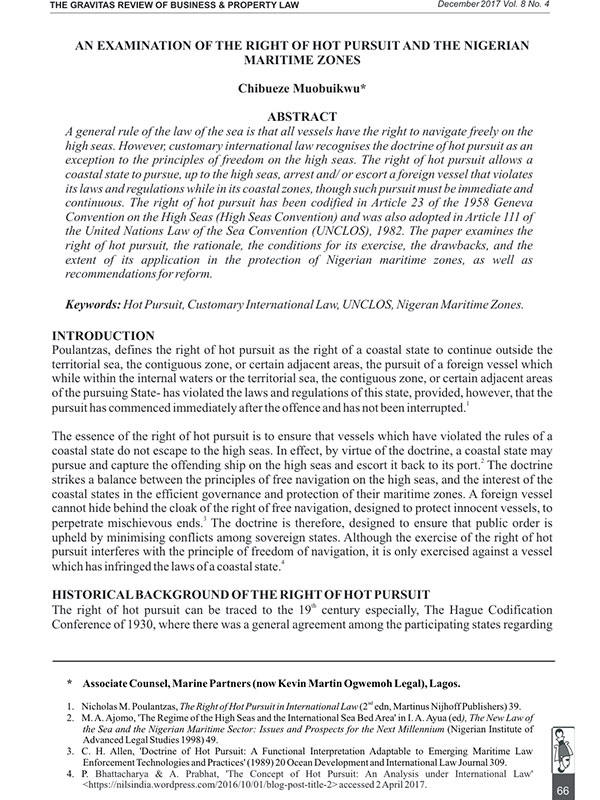
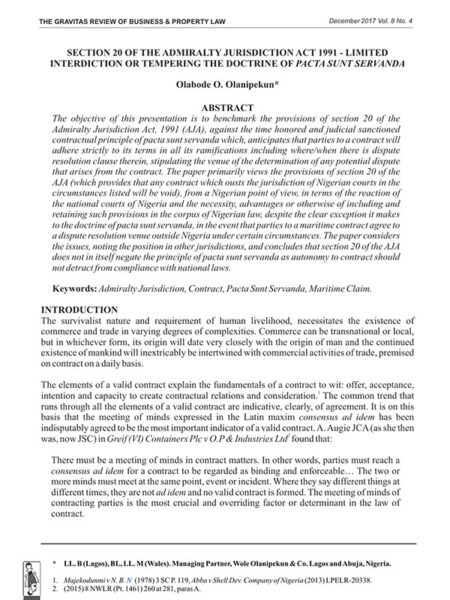
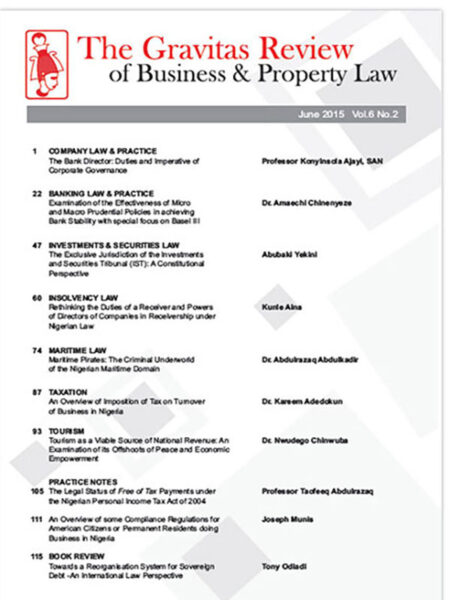
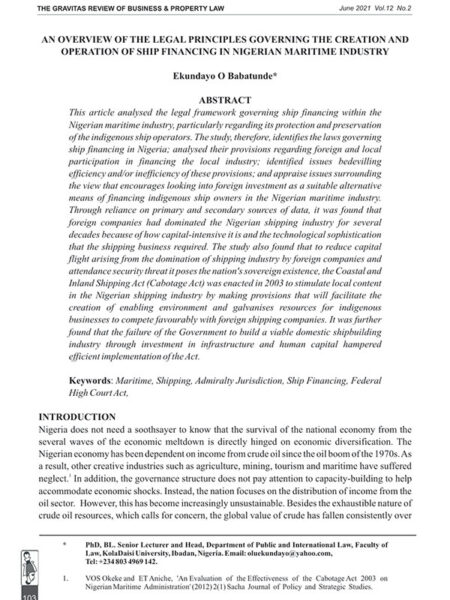
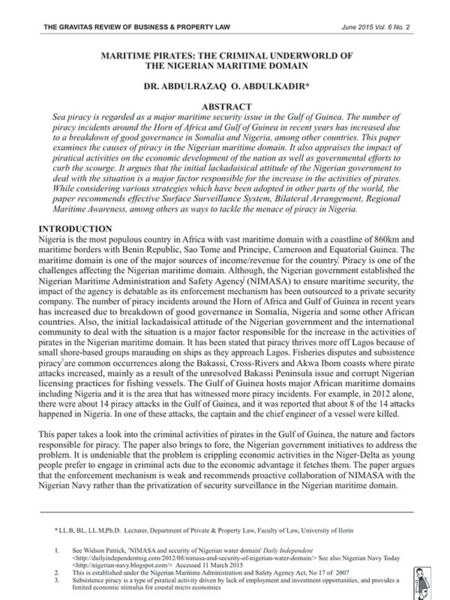


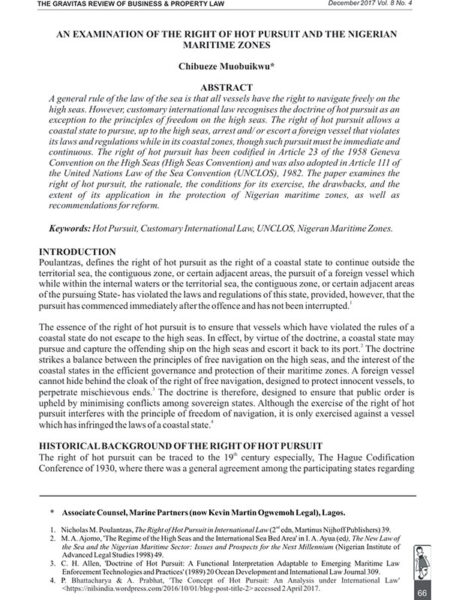
Reviews
There are no reviews yet.